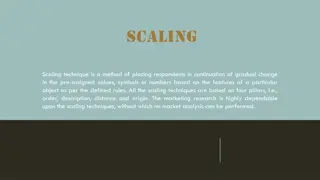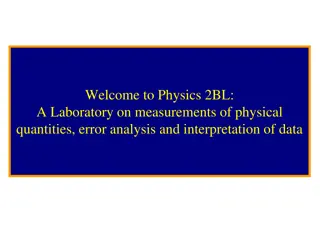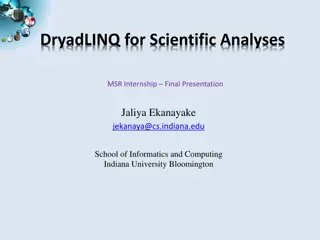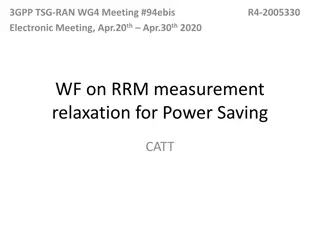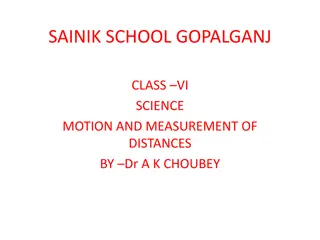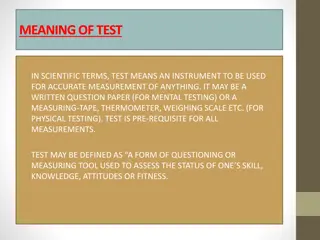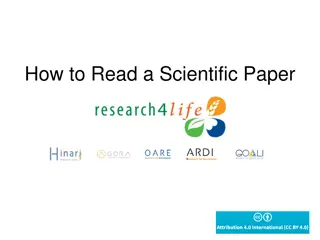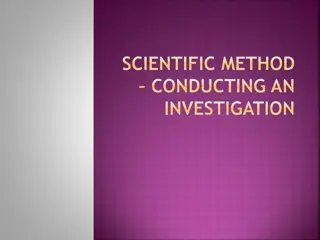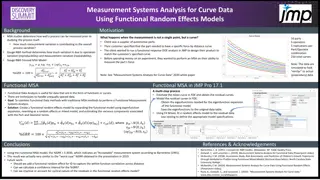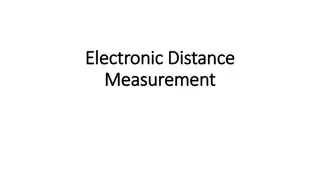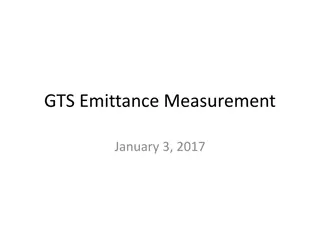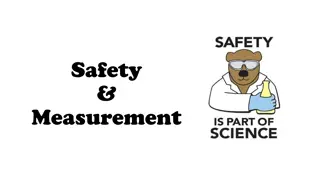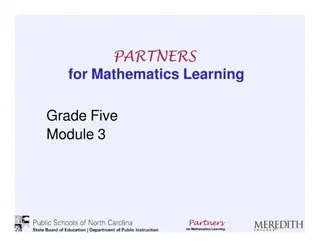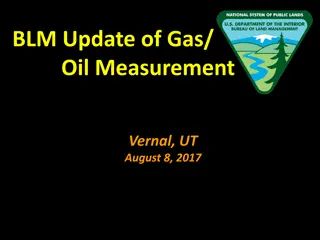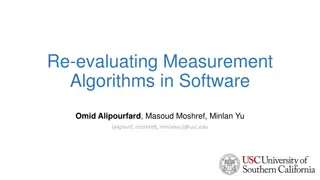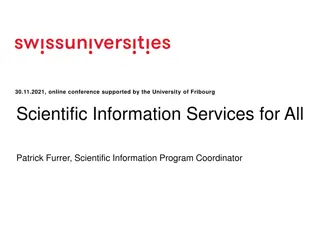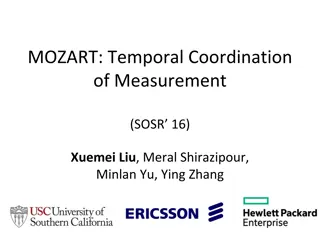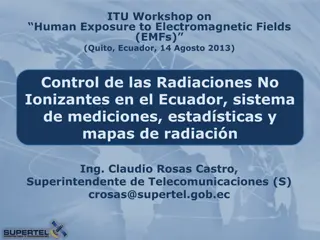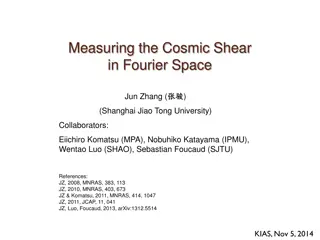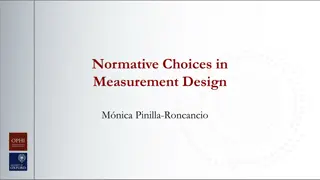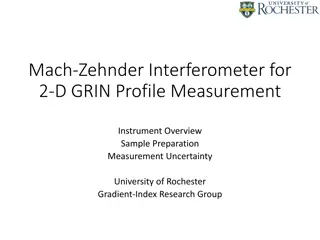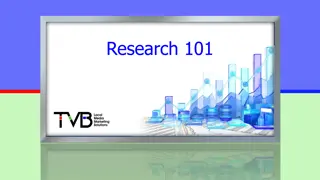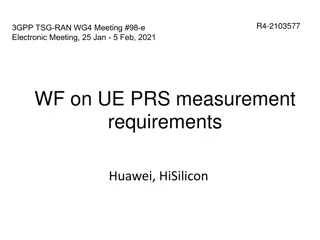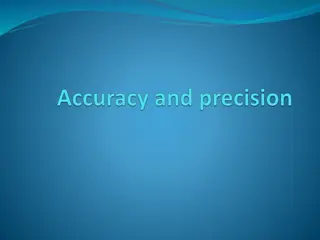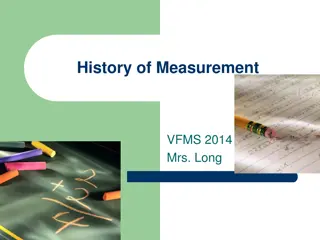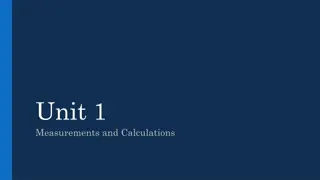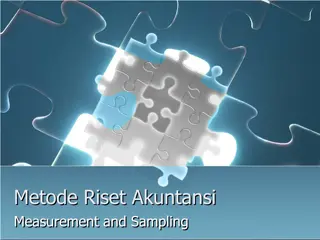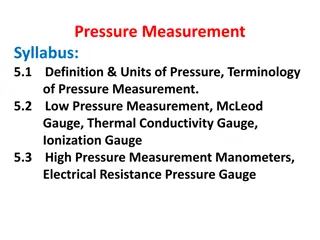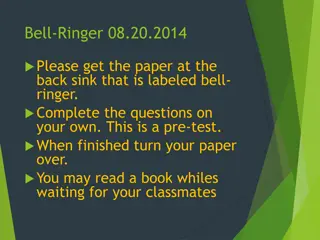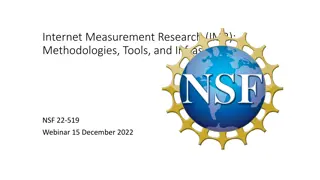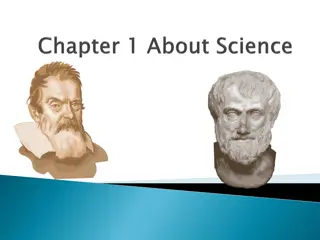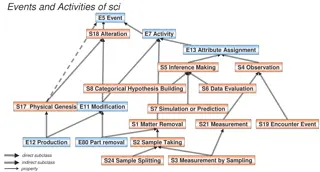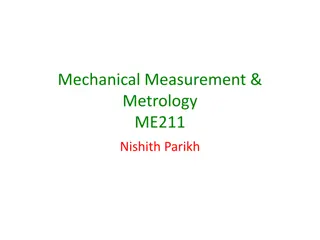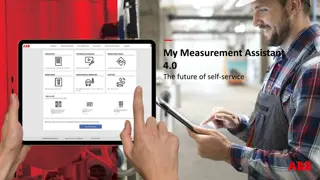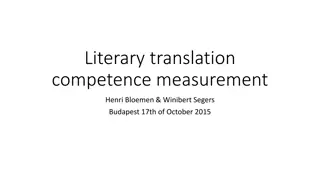Enhancing Scientific Literacy in Early Years Play-Based Learning
This PhD research proposal explores scientific literacy among children in play-based learning, focusing on everyday concepts and their application to scientific understanding. The study aims to implement Vygotsky's sociocultural theory to enhance children's scientific literacy through Vision 1 and V
7 views • 19 slides
Exploring the PROTEOCURE COST Action: Targeting Proteolysis for Proteome Remodeling
The PROTEOCURE COST Action focuses on targeting proteolysis for proteome remodeling, aiming to enhance Europe's scientific and technological capacity through collaboration across various fields and career stages. Participating in this initiative offers financial support, scientific networking, and c
0 views • 17 slides
Understanding Climate Change through Scientific Inquiry
Explore the role of science in addressing climate change, identifying scientific questions, discussing different disciplines involved, and analyzing the strength and limitations of scientific methods. Engage in activities to understand how scientific questions are formulated and categorized for inve
2 views • 22 slides
Understanding Measurement Scales and Scaling Techniques
Measurement scales play a crucial role in marketing research, with techniques like scaling helping to categorize data. The content discusses four types of measurement scales: nominal, ordinal, interval, and ratio, outlining their characteristics and differences. Scaling techniques involve placing re
5 views • 7 slides
Physics 2BL Laboratory: Measurements, Error Analysis & Data Interpretation
This Physics 2BL laboratory course focuses on measurements of physical quantities, error analysis, and interpretation of data. Students learn how scientists create models of natural phenomena and the practical aspects of conducting scientific experiments. Pre-requisites include Physics 2A, 4A or equ
0 views • 31 slides
Evaluation of DryadLINQ for Scientific Analyses
DryadLINQ was evaluated for scientific analyses in the context of developing and comparing various scientific applications with similar MapReduce implementations. The study aimed to assess the usability of DryadLINQ, create scientific applications utilizing it, and analyze their performance against
0 views • 20 slides
RRM Measurement Relaxation for UE Power Saving in 3GPP Meeting #94ebis
This document discusses methods for relaxing RRM measurements to save power in UE devices during idle/inactive states. It covers scenarios with low mobility, non-cell edge, and combinations, suggesting options like longer measurement intervals and relaxing neighbor cell measurement requirements. The
0 views • 7 slides
Understanding Motion and Measurement of Distances in Science at Sainik School Gopalganj
Explore the concepts of motion and measurement of distances in science as taught by Dr. A.K. Choubey at Sainik School Gopalganj. Discover the development of means of transport, different measurement methods like non-standard and standard measures, the significance of measurement, and the Internation
1 views • 16 slides
Understanding Tests, Measurements, and Evaluation in Scientific Terms
In scientific terms, a test is an instrument used for accurate measurement in mental or physical assessments, while measurement involves collecting information through administering and scoring tests. Evaluation assigns value to measurement scores by comparing collected data with standards and makin
1 views • 8 slides
Guide to Reading Scientific Papers
Understanding how to read a scientific paper is crucial for researchers and students alike. This guide covers the types of scientific papers, organization of a paper, and the key steps to properly read and comprehend complex scientific information. It explains the different sections of a paper, such
0 views • 20 slides
Understanding the Scientific Method: A Comprehensive Guide
Exploring the scientific method and principles of scientific investigation, this guide covers the mindset of a scientist, steps in the scientific method, and key components like formulating questions, conducting research, creating hypotheses, performing experiments, and analyzing results. It emphasi
1 views • 21 slides
Functional Measurement Systems Analysis for Curve Data Using Random Effects Models
Measurement Systems Analysis (MSA) is crucial in determining the contribution of measurement variation to overall process variation. When dealing with curve data instead of single points, a Functional MSA approach using random effects models can be applied. This involves estimating mean curves, mode
0 views • 5 slides
Understanding Electronic Distance Measurement in Surveying
Electronic Distance Measurement (EDM) is a precise method for measuring distances between two points using electromagnetic waves. It offers speed and accuracy, especially useful for long or inaccessible distances. EDM, a type of surveying instrument, measures phase changes in energy waves traveling
0 views • 7 slides
Understanding Measurement and Instruments in Research
Exploring the significance of instruments in research, this content delves into the development and utilization of measures for concepts like caring. It covers the various devices used to measure constructs, the rules governing measurement assignment, direct versus indirect measurement methods, and
2 views • 64 slides
Emittance Measurement Techniques and Analysis
Various emittance measurement techniques like Solenoid and Viewscreen, Single Slit and Viewscreen are discussed in this document along with details on the measurement process, equipment setup, and data analysis methods. Emittance calculations, beamlet intensity profiles, and space-charge dominated b
0 views • 11 slides
Science Classroom Safety and Measurement Guidelines
Learn about the importance of safety in the science classroom, with top guidelines including no eating or drinking, following directions, wearing safety gear, and practicing careful measurement. Understand the key aspects of thinking like a scientist, measurement techniques, metric units, and how to
0 views • 32 slides
Exploring Measurement Challenges and Concepts in Grade Five Mathematics
Delve into a variety of measurement challenges in Grade Five mathematics, including different units, common errors, measurement components, big ideas, accuracy, precision, and the measurement process. Understand the nuances between accuracy and precision, factors affecting measurement accuracy, and
0 views • 39 slides
Update on Gas and Oil Measurement Rules in Vernal, UT
New rules for gas and oil measurement were implemented in Vernal, UT on August 8, 2017. These rules focus on site security, facility measurement points, recordkeeping, and incorporating industry standards. The regulations aim to approve new measurement technology, update standards, and address gaps
1 views • 87 slides
Re-evaluating Measurement Algorithms in Software Domain
This content explores the importance of measurement algorithms in software, focusing on network function virtualization (NFVs) and software switches. It discusses the critical role of measurement in decision-making for firewall, load balancing, and intrusion detection systems in managing NFVs. The n
0 views • 22 slides
Scientific Services for All - Enhancing Scientific Information and Services
This online conference, supported by the University of Fribourg, focuses on providing scientific information and services for all. Led by Patrick Furrer, the Scientific Information Program Coordinator, the event delves into creating a network of services, developing a coordination structure, and sho
0 views • 12 slides
Temporal Coordination of Measurement in Data Centers
Measurement plays a crucial role in data centers for fault diagnosis, traffic engineering, and attack detection. This study focuses on the concept of temporal coordination of measurement to overcome issues like reporting overhead and resource wastage. Various examples illustrate the importance of co
0 views • 29 slides
Regulation and Measurement Process of Non-Ionizing Radiation Exposure in Ecuador
This content discusses the regulation and measurement methods for non-ionizing radiation exposure in Ecuador, including maximum exposure limits, measurement procedures, and information dissemination to the public. It covers topics such as international recommendations, measurement techniques, data p
0 views • 30 slides
Cosmic Shear Measurement in Fourier Space and Its Scientific Goals
Exploring the cosmic shear in Fourier space with a collaborative effort led by Jun Zhang from Shanghai Jiao Tong University sheds light on fundamental scientific questions related to dark energy, the geometry of the universe, General Relativity, cold dark matter, and cosmic structure density distrib
0 views • 48 slides
Choices in Measurement Design and National Poverty Assessment
This content discusses normative choices in measurement design, normative reasoning, relevance, usability, essential choices for creating an Alternative Poverty Measure (AF Measure), alongside measurement design considerations, and a purpose statement for a National MPI. It emphasizes the importance
0 views • 33 slides
Mach-Zehnder Interferometer for 2-D GRIN Profile Measurement
Mach-Zehnder Interferometer is a powerful tool used by the University of Rochester Gradient-Index Research Group for measuring 2-D Gradient-Index (GRIN) profiles. This instrument covers a wavelength range of 0.355 to 12 µm with high measurement accuracy. The sample preparation involves thin, parall
0 views • 6 slides
Understanding Television Research: Markets, Measurement, and Methodologies
Explore the world of television research through topics such as television markets, measurement approaches, local measurement services like Nielsen and Comscore, and Nielsen's measurement methodologies. Learn about Designated Market Areas (DMAs), Household Demographics, People Meters, Portable Peopl
0 views • 42 slides
Fusion Science Department Enabling Research Projects 2021-2023
The Fusion Science Department Enabling Research Projects for 2021-2023 focus on developing novel fusion-relevant scientific and technological ideas. These projects, led by Principal Investigators, are distinct from main work packages and involve scientific planning, team collaboration, and resource
0 views • 11 slides
UE PRS Measurement Requirements Discussion at 3GPP TSG-RAN WG4 Meeting #98-e
Discussion at the 3GPP TSG-RAN WG4 Meeting #98-e focused on UE PRS measurement requirements. The topics included consideration of muting in measurement periods, periodicity scaling for PRS resources, handling different resource periodicities, and offsets in measurement periods. Various options were
0 views • 18 slides
Understanding Accuracy, Precision, and Error in Scientific Measurement
Accuracy and precision are crucial in scientific measurements. Accuracy refers to how close a measurement is to the true value, while precision reflects the consistency of repeated measurements. Understanding and calculating percent error help in evaluating the reliability of data. The difference be
0 views • 13 slides
Evolution of Measurement Systems Over Time
Explore the fascinating journey of measurement systems from historical units like cubit and fathom to the modern metric system. Discover how civilizations developed standardized units for length, weight, and mass. Follow the timeline of measurement advancements, from King Edward's iron ulna to the b
0 views • 36 slides
Understanding Scientific Notation and SI Measurement Basics
Explore scientific notation as a method for expressing large and small numbers efficiently in mathematical calculations. Practice converting numbers into scientific notation and learn the rules for multiplication, division, addition, and subtraction in this format. Additionally, discover the benefit
0 views • 41 slides
Understanding Accounting Research Methods: Measurement and Sampling
Measurement is a crucial aspect of research in accounting. It involves assigning numbers to empirical events, objects, or properties. Measurement consists of selecting measurable phenomena, developing mapping rules, and applying these rules appropriately. The process of measurement includes determin
0 views • 63 slides
Comprehensive Guide to Pressure Measurement Methods
This comprehensive guide delves into the definition, units, and terminology of pressure measurement, covering low and high-pressure measurement techniques such as McLeod Gauge, Thermal Conductivity Gauge, Ionization Gauge, Manometers, and Electrical Resistance Pressure Gauge. It also explores the re
0 views • 56 slides
Understanding the Scientific Method: Pre-Test and Daily Agenda
Explore the process of science with a pre-test on the scientific method, followed by a detailed daily agenda covering activities like bell-ringers, reviews, and experimental design. Understand the nature of science, scientific reasoning, and the importance of variables, groups, and constants in inve
0 views • 51 slides
Advancing Internet Measurement Research: IMR Program Overview
The Internet Measurement Research (IMR) program aims to enhance Internet measurement methodologies, tools, and infrastructure for a comprehensive understanding of wired and wireless networks. It promotes the development of new data collection methods, measurement tools, and related infrastructure. T
0 views • 23 slides
Evolution of Scientific Thought and the Scientific Method
Explore the evolution of scientific theories and methodologies through the works of influential figures like Aristotle, Copernicus, Galileo Galilei, and Francis Bacon. From the geocentric beliefs of Aristotle to the heliocentric model proposed by Copernicus, witness the shift in paradigms and the em
0 views • 14 slides
Comprehensive Overview of Scientific Events and Activities
Delve into the intricate processes of scientific exploration, encompassing activities such as alteration, observation, hypothesis building, data evaluation, and simulation. Explore the essence of physical genesis, matter removal, measurement, and encounter events within the realm of scientific study
0 views • 7 slides
Mechanical Measurement & Metrology ME211 Teaching Scheme and Syllabus
Teaching scheme includes lectures and labs schedule, continuous examination plan, evaluation criteria, internal assessment, and syllabus covering measurement concepts, linear and angular measurement, gear terminology, measurement of mechanical parameters, and miscellaneous metrology topics. Recommen
0 views • 18 slides
My Measurement Assistant 4.0 - The Future of Self-Service
My Measurement Assistant 4.0 is a cutting-edge self-service application designed to enhance customer experience and support for ABB measurement devices. It offers a wide range of features such as spare parts identification, error code identification, temperature performance estimation, and remote su
1 views • 34 slides
Understanding Competence Measurement in Literary Translation
Exploring the concept of competence measurement in literary translation, this text delves into the ELV competence model, a five-step scheme for measurement, reliability versus validity, and the relationship between competence measurement and translation product evaluation. It discusses the importanc
0 views • 18 slides



